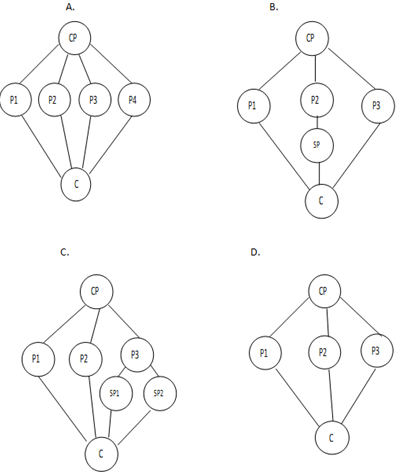题目内容
19.Some people are like homing pigeons:Drop them off anywhere,and they'll find their way around.Other people,though,can't tell when they're holding a map upside down.Are the directionally challenged just bad learners?Not all of your navigational (导航的)skills are learned.Research shows that your sense of direction is innate.An innate ability is something you are born with.Your brain has special navigational neurons-head-direction cells,place cells,and grid cells (网格细胞)-and they help program your inside compass when you're just a baby.
In 2010,scientists carried out an experiment to study baby rats'neural activity in their brains.Although the rats were newborns,the researchers discovered that their head-direction cells (which help them recognize the direction they're facing) were fully grown and developed.The rats,it seemed,were born with a sense of direction.And they hadn't even opened their eyes yet!
Humans,of course,are not rats.But the hippocampus-the brain area we use for navigation-is similar in most mammals.If the rat's compass develops this way,then it's likely that a human's compass does,too.
If we're born with a sense of direction,then why are some people so good at getting lost?The scientists found that the two other cells-place and grid cells-developed within the first month.Place cells are thought to help us form a map in our mind,while grid cells help us navigate new and unfamiliar places.The two cells work together,and that's where the trouble might be.
People who took part in a 2013study played a video game that required them to travel quickly between different places.Monitoring their brains,the scientists found that grid cells helped the gamers recognize where they were-even without landmarks.According to researcher Michael Kahana,differences in how grid cells work may help explain why some people have a better sense of direction than others.
32.What did the 2010research find?A
A.Rats have a natural ability to recognize directions.
B.Rats'hippocampus is different from that of humans.
C.Rats usually find their way without opening their eyes.
D.Baby rats have as many head-direction cells as grown-ups.
33.What do we know about our navigational neurons?D
A.Place cells let us know how to read a map.
B.Grid cells help us reach the place we are going to.
C.They help us use a compass when we lose our way.
D.Place and grid cells grow later than head-direction cells.
34.Why are some people so good at getting lost?B
A.They can't remember landmarks.
B.Their grid cells can't work very well.
C.They are unfamiliar with new places.
D.Their ability to follow directions is poor.
35.What is the text mainly about?A
A.Human navigational skills.
B.The compass in rats'body.
C.Why grid cells are useful.
D.How homing pigeons work.
分析 本文是一篇科教类阅读,主要讲述了人们"导航"的技能.有些人天生可以识别方向不会迷路,但另外一些人却经常会迷失方向.文章通过介绍一项对老鼠的实验结果告诉我们人的方向感是天生就有的,有些人迷路是因为网格细胞所引起的效果不好.
解答 32-35.ADBA
32.A细节理解题.根据第三段The rats,it seemed,were born with a sense of direction.And they hadn't even opened their eyes yet!似乎刚刚出生的老鼠就已经有了明确的方向感,而且它们都还没有睁开眼睛!可知老鼠识别方向的能力是天生的.故选A.
33.D细节理解题.根据第五段The scientists found that the two other cells-place and grid cells-developed within the first month.科学家发现两个其它的地方细胞和网格细胞是在出生以后第一个月里形成的.而头部方向的细胞是天生就有的,也就是说地方细胞和网格细胞生长晚于头部方向的细胞.故选D.
34.B推理判断题.根据第五段while grid cells help us navigate new and unfamiliar places.而网格细胞帮助我们确定新的不熟悉的地方.可知人们会迷路就是因为网格细胞没有很好地发挥作用.故选B.
35.A主旨大意题.主要讲述了人们"导航"的技能.有些人天生可以识别方向不会迷路,但另外一些人却经常会迷失方向.故选A.
点评 本文考察学生的理解推断能力以及细心程度,只要抓住文章的关键词,采用寻读的方法查找细节,就能找到正确答案.

练习册系列答案
 阅读快车系列答案
阅读快车系列答案
相关题目

